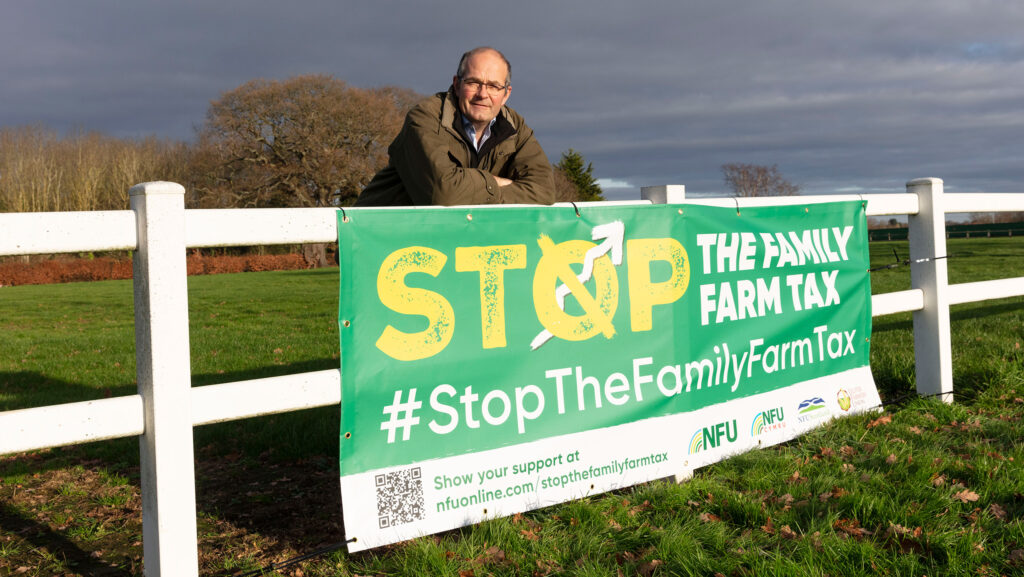More than 12,000 write to MPs in farm tax letter protest
 NFU president Tom Bradshaw © NFU
NFU president Tom Bradshaw © NFU More than 12,000 people have written to 551 MPs urging them to “speak up for farming” as anger mounts over the government’s planned family farm tax.
The NFU’s letter writing campaign comes amid growing alarm that the government’s inheritance tax (IHT) reforms could devastate Britain’s family farms.
The union says time is running out for ministers to rethink the policy ahead of the Autumn Budget on 26 November.
See also: Eagle quashes rumours of ‘family farm tax’ reprieve
The campaign follows an emotional BBC Countryfile interview with Welsh farmers Tom and Charles Rees, whose story highlighted the “disastrous consequences” of the tax for family-run farms.
NFU president Tom Bradshaw thanked the public for supporting the Stop the Family Farm Tax campaign, praising their “unwavering support for our farmers and growers” and the strong response to its letter drive.
He said: “It is remarkable that in the space of less than two weeks, more than 12,000 letters have been emailed to politicians of all parties.
“Many MPs have been contacted by more than 50 constituents which really helps the message cut through.”
Mr Bradshaw warned of the human impact of this “awful and unfair” tax.
“You only have to watch the powerful interview with the Rees family on BBC Countryfile to understand how many farming families will be left in the lurch, unable to afford horrendous future tax bills,” he said.
With the Budget just over two weeks away, he urged the government to consider alternatives proposed by the NFU and others to support British farming and investment.
Under current plans, from April 2026 farming and rural businesses would face a 20% tax on inherited combined agricultural and business property worth more than £1m.
Tax alternatives
CenTax says these measures could protect working farms while maintaining or increasing tax revenue.
Its findings echo NFU analysis suggesting up to 75% of commercial farms could be affected – nearly three times the Treasury’s estimate of 550 farms a year.
However, the UK government has repeatedly defended its plans, describing them as “fair and balanced” and essential for supporting public finances.
- Email your MP and show your support for the NFU’s Stop the Family Farm Tax campaign.
